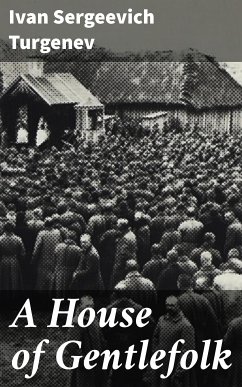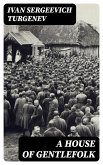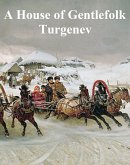In Ivan Sergeevich Turgenev's "A House of Gentlefolk," the reader is invited into the intricate world of Russian gentry during the 1850s, a pivotal time of social and political change. The narrative unfolds through the eyes of Lavretsky, a disillusioned aristocrat, who returns to his ancestral estate only to confront the complexities of love, nostalgia, and the evolving landscape of Russian society. Turgenev's prose is marked by its lyrical quality and deep psychological insight, weaving character-driven storytelling with poignant reflections on societal norms and personal aspirations, positioning the work firmly within the realist literary tradition of 19th-century Russia. Turgenev, born into a wealthy landowning family, was acutely aware of the tensions between the classes and the shifting values of his time. His exposure to both the gentlefolk and the serfs informed his empathetic portrayal of human relationships and conflicts. This personal background, coupled with his experiences in Europe, particularly in France, shaped not only his perception of the socio-political landscape but also the nuanced character studies that define this novel. Highly recommended for readers interested in Russian literature, "A House of Gentlefolk" offers profound insights into human nature and the societal changes of its era. Turgenev'Äôs exploration of identity, love, and moral dilemmas resonates universally, making it a timeless classic that continues to engage and enlighten contemporary audiences.
Dieser Download kann aus rechtlichen Gründen nur mit Rechnungsadresse in A, B, BG, CY, CZ, D, DK, EW, FIN, F, GR, H, IRL, I, LT, L, LR, M, NL, PL, P, R, S, SLO, SK ausgeliefert werden.
Hinweis: Dieser Artikel kann nur an eine deutsche Lieferadresse ausgeliefert werden.









